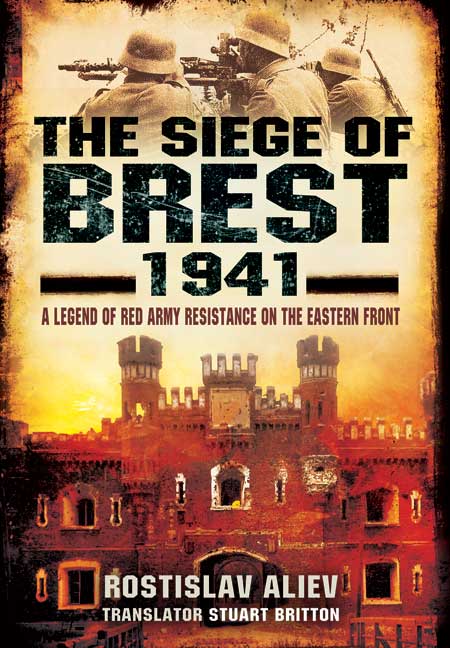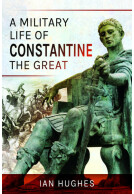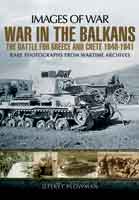The Siege of Brest 1941 (Hardback)
A Legend of Red Army Resistance on the Eastern Front
Imprint: Pen & Sword Military
Pages: 224
ISBN: 9781781590850
Published: 1st October 2013
(click here for international delivery rates)
Need a currency converter? Check XE.com for live rates
| Other formats available - Buy the Hardback and get the eBook for free! | Price |
|---|---|
| The Siege of Brest 1941 ePub (9.2 MB) Add to Basket | £6.99 |
On 22 June 1941, soon after 3am, the first German shells smashed into the Soviet frontier fortress of Brest – Hitler's Operation Barbarossa had begun. Across a massive front stretching from the Baltic to the Black Sea, the Wehrmacht advanced, taking the Red Army by surprise, brushing aside the first stunned resistance, breaking through and taking thousands of prisoners, but the
isolated stronghold of Brest held out. The defenders, trapped and without hope of relief, put up a tenacious resistance against an entire German division as the Soviet front collapsed behind them.
The heroic defence of Brest has become one of the legends of the Second World War on the Eastern Front, an example of selfless Soviet heroism in the face of Nazi aggression. Rostislav Aliev, in this gripping narrative, describes the fighting in vivid detail, hour by hour. In the process he strips away the myths and exaggerations that have grown up around this famous story.
Using eyewitness testimony and fresh research, he reconstructs each stage of the siege – the shock and violence of the initial artillery barrage, the disorder among the defenders as they struggled to organize resistance, their doomed counter-attacks, the continuous, merciless pounding of the fabric of the fortress by German guns and bombs, the grim fate of the Soviet survivors, and the extraordinary aftermath – the suicidal resistance of small groups of Red Army soldiers operating underground in the passages and dungeons of the shattered fortress.
The battle for the fortress of Brest commenced immediately upon the attack by the Germans on the Soviet Union, 22 June, 1941. Located upon a strategic line of advance, it was the focus and task of the German 45th Infantry Division to capture it within the first 24 hours. To accomplish this feat, a heavy concentration of artillery including two massive 600cm siege mortars, were employed to reduce both the fortress and the garrison. However, despite achieving complete surprise on the garrison, steadfast leadership and dogged determination on the part of the Soviet survivors resulted in a brutal battle of attrition that lasted for seven days before the final contingent of Soviets surrendered (individual soldiers continued to fight until as late as August, 1941).
Canadian Army Journal
Aliev's most noteworthy achievement with this work lies not with the depth of detail or the lucidity of the text but in the fact that he has superbly rendered the story of the lead up and execution of the battle with a degree of suspense and drama rarely achieved in historical narrative. His humanization of key Russian and German figures adds life and dimension to this trial by combat.
By switching his storyline between the opposing sides, thereby creating concurrent lines of narrative, he gives the reader a clear vision of the perspective, stresses and decision influencers of each. One truly begins to appreciate the horror of the conditions under which the Russians fought and the cold blooded realities facing those wounded or captured by either side. Interspersed with these were instances of true humanity as Germans, while frustrated at the continued intransigence of the Russians, nevertheless came to see their opponents as warriors worthy of respect. Aliev is able to convey with startling clarity the responsibility assumed by the most junior of Russian offiers, a real sense of the brutality of the hand to hand fighting, the fear of close quarter combat with knives and grenades in the confined spaces of the fortress casemates and the suffering of the wounded and civilians trapped within the fortress.
The major critical observations on this book centre upon two points: there is no index nor a bibliography which is always important for reference at a later date and the fact that, while there are excellent maps tracing the unfolding combat, there is not a map that provides a single overview of the fortress itself. It would have been quite useful to have had a single reference for the layout.
Aliev, for his part, does refer to sources that he used in his introduction (German Bundeswehr archives in Freiburg and Soviet recollections gathered in the 1950's by Sergei Smirnov's as well as the report by the commander of the 45th Infantry Div "Account of the taking of Brest-Litovsk"). By doing so, he is able to compare and confirm the recollections and timelines using sources from the opposing camps.
The efforts, names and valour of the warriors of Brest-Litovsk were unknown to the Soviet leadership for a long time and, it was not until the late 1950's that excavations of the fort recovered the final remains of many who had held out long after all hope had expired. For the Russians, Brest served as a shining example of courage and fidelity during a period of great loss and collapse.
Stuart Britton undertook the translation of the original Russian transcript and has done a remarkable job of not only reproducing the work into english but also ensuring that the 'essence' of the narrative conveyed in the original work was maintained. The book is an excellent rendition of a little known battle that was literally a footnote in the massive campaign that was Barbarossa or the Great Patriotic War. It serves as an excellent example of the effect that inspired leadership at the lowest level can have on the outcome of a battle. Aliev, has ensured through his efforts that the valour and sacrifice of both the defenders and the aggressors will not be forgotten.
Relatively little coverage has been made of Russian campaigns and battles during the Great Patriotic War in English language publications and books. What has been published in the Russian language has contained many distortions to fit the accounts into the ‘official’ Soviet view. When a book, such as this new title from Pen & Sword, appears in both Russian and English, based on extensive research and showing the Russian and German views, it is a rare and valuable historic account.
Firetrench.com
About Rostislav Aliev
On 22 June 1941, soon after 3am, the first German shells smashed into the Soviet frontier fortress of Brest – Hitler’s Operation Barbarossa had begun. Across a massive front stretching from the Baltic to the Black Sea, the Wehrmacht advanced, taking the Red Army by surprise, brushing aside the first stunned resistance, breaking through and taking thousands of prisoners, but the isolated stronghold of Brest held out. The defenders, trapped and without hope of relief, put up a tenacious resistance against an entire German division as the Soviet front collapsed behind them. The Germans had allowed twelve hours to secure the area, but it took them nine days. The heroic defence of Brest has become one of the legends of the Second World War on the Eastern Front, an example of selfless Soviet heroism in the face of Nazi aggression. Rotislav Aliev, in this gripping narrative, describes the fighting in vivid detail, hour by hour, and he strips away the myths and exaggerations that have grown up around this famous story.














